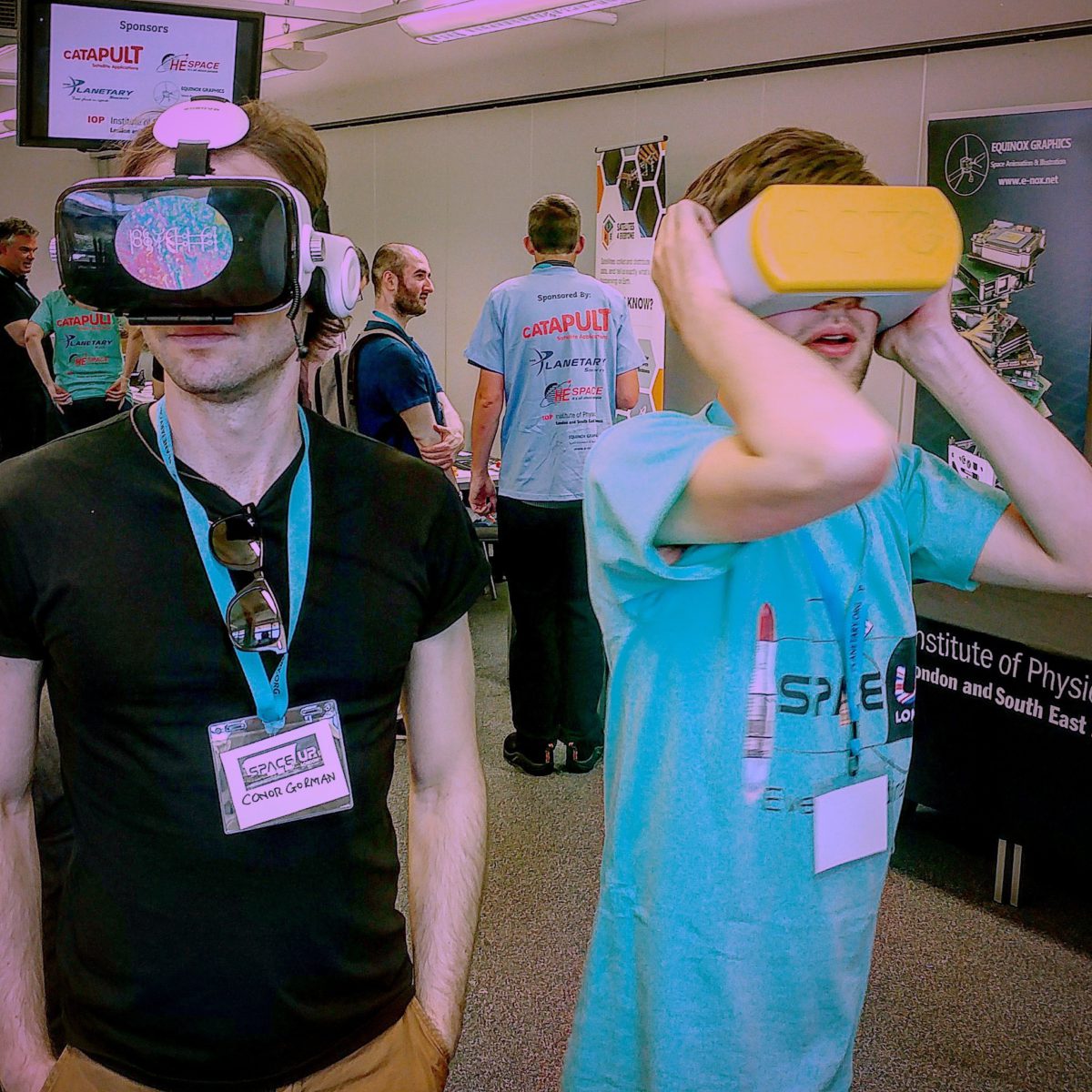Harriet Brettle • Jun 22, 2017
Planetary Society volunteers host SpaceUp London 2017
On Saturday 10th June, The Planetary Society brought together space enthusiasts at Queen Mary University of London for “SpaceUp London 2017”—the first large-scale event organized by Planetary Society volunteers in Europe.
Because this was an ‘unconference’, the participants largely decided the discussion topics on the day of the event. The day was packed with quick-fire 5-minute talks, breakout discussion sessions, keynote talks, brainstorming sessions, and other opportunities for guests to challenge each other. Attendees came from a wide variety of backgrounds, and included medics, theatre students, virtual reality experts, amateur astronomers, satellite company representatives, and more. This fostered lively discussions and inspiring conversations.
Tom Kerss, an astronomer from the Royal Observatory, kicked off the day with a talk entitled What We Are Made Of. Breaking us down to the core elements, Tom explained how we are forged in the centers of stars and truly are part of the cosmos that surrounds us.
Post-it notes quickly filled the discussion board, and we split into two rooms for the first breakout sessions. Conversation jumped from the importance of mental health for astronauts, to the issue of light pollution in London, to space satellite imaging. The atmosphere was lively as people discussed the ethics of habitability. Mars alone or get started on planet 2.0? One of the rooms was split on whether we should terraform Mars or not.
In the quick-fire presentations that followed, participants gave a brief insight into their favorite space topics. An amateur astronomer explained the latest crazes from exoplanet research, quickly followed by another attendee proposed that Titan should be our focus for exploration. Next up was the energetic founder of Mars Nation who talked about her group that meets to brainstorm solutions on the challenges of inhabiting mars. After jumping around the solar system, we landed safely on the Moon. Lunar Mission One trustee David Iron explained his vision to leave a permanent archive of human life under the Moon’s south pole.
Next up was Daniel Grant, a doctor at the Centre for Altitude Space and Extreme Environment Medicine, who delivered a keynote on the effects of space on the human body. Using chocolate bars, Daniel explained that in space, human legs go from being like crunchy bars to more like foamy Aero chocolate bars over time. The audience might have been skeptical, had he not tossed so many bars into the audience to help illustrate the point. He also demonstrated the challenges of balance in space with one lucky volunteer. Try spinning with your eyes closed. Not hard enough? Try spinning with your eyes closed and your head tilted to one side. Much trickier. You can try this at home, kids!
Lunchtime gave everyone time to check out some solar observing with telescopes outside, and check out other exhibits. The European Space Agency’s ‘Couture in Orbit’ project had a fantastic display of fashion pieces inspired by and incorporating space technology. The Square Telescope Array also provided virtual reality headsets for people to experience an immersive perspective of the array.
For the third keynote, I had a conversation on stage with Jon Culshaw, a comedian, impersonator, and astronomy enthusiast. Guests were treated to a range of fun anecdotes complete with impersonations of Brian Cox, Sir Patrick Moore, Carl Sagan, and David Attenborough. It was as if they were in the room.
For the second round of participant-led sessions, attendees were again spoiled for choice between topics that included the ethics of going to Mars, space debris, asteroid mining, satellite applications, human evolution in space, and more. The highlight was seeing attendees bridging across different parts of the space community. Virtual reality experts connected with psychologists to talk about using technology to deal with the challenges of human spaceflight. The organiser of a local star gazing club got some tips from the Royal Observatory to address light pollution in London.
There were a number of Planetary Society members present, including Board member Bee Hayes-Thakore, who delivered the final keynote of the day. Bee introduced the audience to the roots of The Planetary Society, talked about the excitement of the upcoming LightSail 2 launch, and reminded us of Carl Sagan’s words about this pale blue dot we call home:
It has been said that astronomy is a humbling and character-building experience. There is perhaps no better demonstration of the folly of human conceits than this distant image of our tiny world. To me, it underscores our responsibility to deal more kindly with one another, and to preserve and cherish the pale blue dot, the only home we've ever known.”
It was inspiring to hear how The Planetary Society has grown into a global organization educating, advocating, and innovating across the world.
The day finished on a high note with prizes for the most active attendees. There were awards for best tweet (check out #spaceuplondon for the whole list) and best space pun. The winner: How do you organize a space party? You planet! The top quick-fire presenters were also congratulated, and one winner, Athos Athanasiou, re-performed his space poem that perfectly summarized the day.
SpaceUp London embodied The Planetary Society’s mission to ‘empower the world's citizens to advance space science and exploration’. SpaceUp events can be organized by anyone, anywhere. Check out the website to find your nearest event and advice to get one started yourself. SpaceUp London enabled the local space community to forge its own unique event and discuss the topics attendees were truly passionate about. New friends were made, great ideas born and new links forged. London is getting to know the cosmos and SpaceUp has helped us to find our place within it.
Support our core enterprises
Your support powers our mission to explore worlds, find life, and defend Earth. You make all the difference when you make a gift. Give today!
Donate

 Explore Worlds
Explore Worlds Find Life
Find Life Defend Earth
Defend Earth




